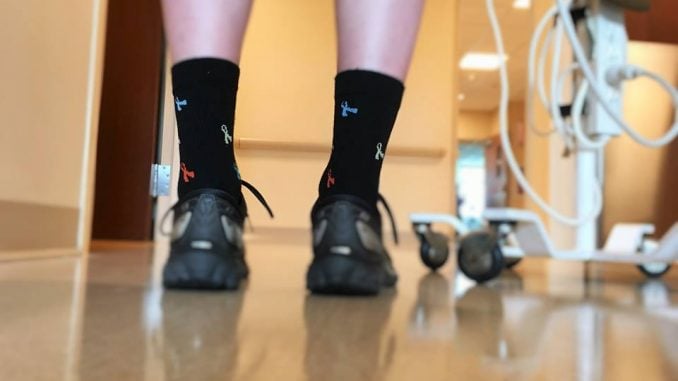
What if you had the opportunity to change the world? What if you had an idea resting in your head for years, and you were finally able to bring it to life – but only had two minutes to convince esteemed judges why your idea matters?That’s exactly what students turned prospective entrepreneurs were able to do at Wake Forest University’s Retail & Health Innovation Challenge. Yet when pitching an idea – where do retail and health intersect and where on the greater scale will it make a difference in our day-to-day life?”America is experiencing silver tsunami. Everyday people are turning 65, a large part of our population are baby boomers who are demanding more from healthcare.” said Roger Beahm, Executive Director of the Wake Forest University School of Business Center for Retail Innovation. “There’s a growing interest in the retail and health intersection…retailers in general have taken on a much more aggressive marketing stance to helping meet those market needs.”Yet retailers aren’t just seeking established corporations to provide them with new ideas in conquering this ‘silver tsunami,’ instead they’ve turned to a younger generation. What originally started 18 years ago as an opportunity for students to pitch ideas to investment bankers is now sponsored by retail health store giant CVS. Four years ago CVS wanted to evolve the competition into what it is today, and Wake Forest University is now in its third year of a five-year contract with CVS.On Nov. 11 and 12, 13 teams from Harvard University, Emory University, University of Iowa, Wake Forest University, and other schools traveled to Winston-Salem to risk it all in their two-minute pitches, hoping to be chosen to compete among the top four teams that are allowed final 30-minute presentations to judges.While described as an ‘elevator pitch’, what matters, said Beahm, was the heart of the idea. When Jake Teitelbaum stood in front of the judges for those two minutes presenting “The Resilience Project,” revolving around custom-made socks for cancer patients, the 14 judges only saw a flicker of what was behind his idea.”The socks represented what was to come, each time you’re admitted to the hospital you receive your package. A hospital stay would be 30 days, chemo would last 30 days, when I went in I always made it a point to wear my own socks.”Teitelbaum was a double major battling Refractory Hodgkin’s Lymphoma. In and out of the hospital, he says he was lucky to have his own support system but noticed that several other patients were fighting alone. “One patient started a GoFundMe because she was really struggling. What I realized was it’s not uncommon for patients with chronic illness to have difficulty paying for that care. Having that support and seeing people around me not having that support really stood out to me – how can I redirect that support for the people who need it more?”Beahm described the project as “When people go to the hospital for chemo and cancer treatments it can be very emotionally taxing. Allowing patients to design their socks with a warm friendly design, or when you buy you can donate a pair, is powerful because of the emotional benefit that really helps the patient develop a better mindset.”Luckily, Teitelbaum and his partner Sophia Faltin placed third in the challenge awarding them $5,000 dollars. While The Resilience Project has already seen success he said the innovation challenge “Was an opportunity to see what kind of validity others thought about the idea.” It also stood as an opportunity to answer some hard questions and particularly think about business and branding. One of the most challenging questions he received was – “What’s your vision for the next five years, are you just a sock company?”While Teitelbaum’s idea is health, meets retail, meets heart – Beahm stressed the importance of teams really hitting that intersection. First place and $25,000 went to a cold weather mask with multiple applications to help city or state workers fight the conditions and people with asthma breathe easier on those subzero days. Beahm said the idea persuaded judges because it had the potential to take off and see success in the marketplace. The 2nd place, and $10,000 dollars went to a tea made from a mushroom specific to the Adirondacks with strong antioxidant properties.After the competition is over and students return to their respective schools, many bring their idea to life with the help of awarded funding, while others learn the importance of shaping an entrepreneurial goal into something that is large enough to impact the marketplace while retaining success and growth. Teitelbaum has sold over 1,300 pairs of socks as well as raised $6,500. Of the contest and its future Beahm said “It is one of the many steps along the road to success.”



